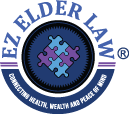
Here are a few stats: The average shopper sees 4,000 ads in a day. The average person is interrupted once every 8 minutes. On average, people spend 3 hours and 15 minutes per day on their phones. The typical American spends three hours per day watching TV. The stats on prayer aren’t quite as good. […]



